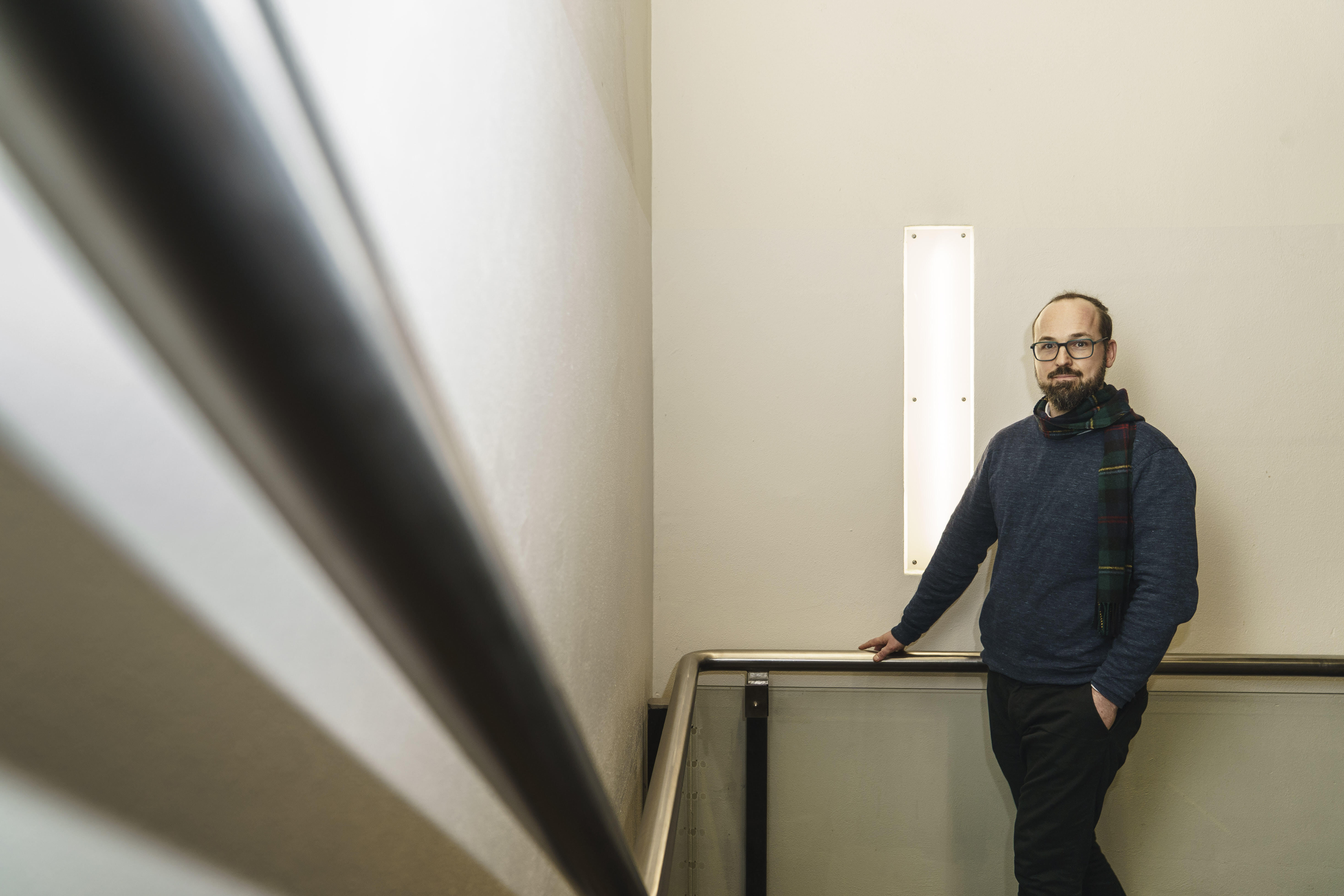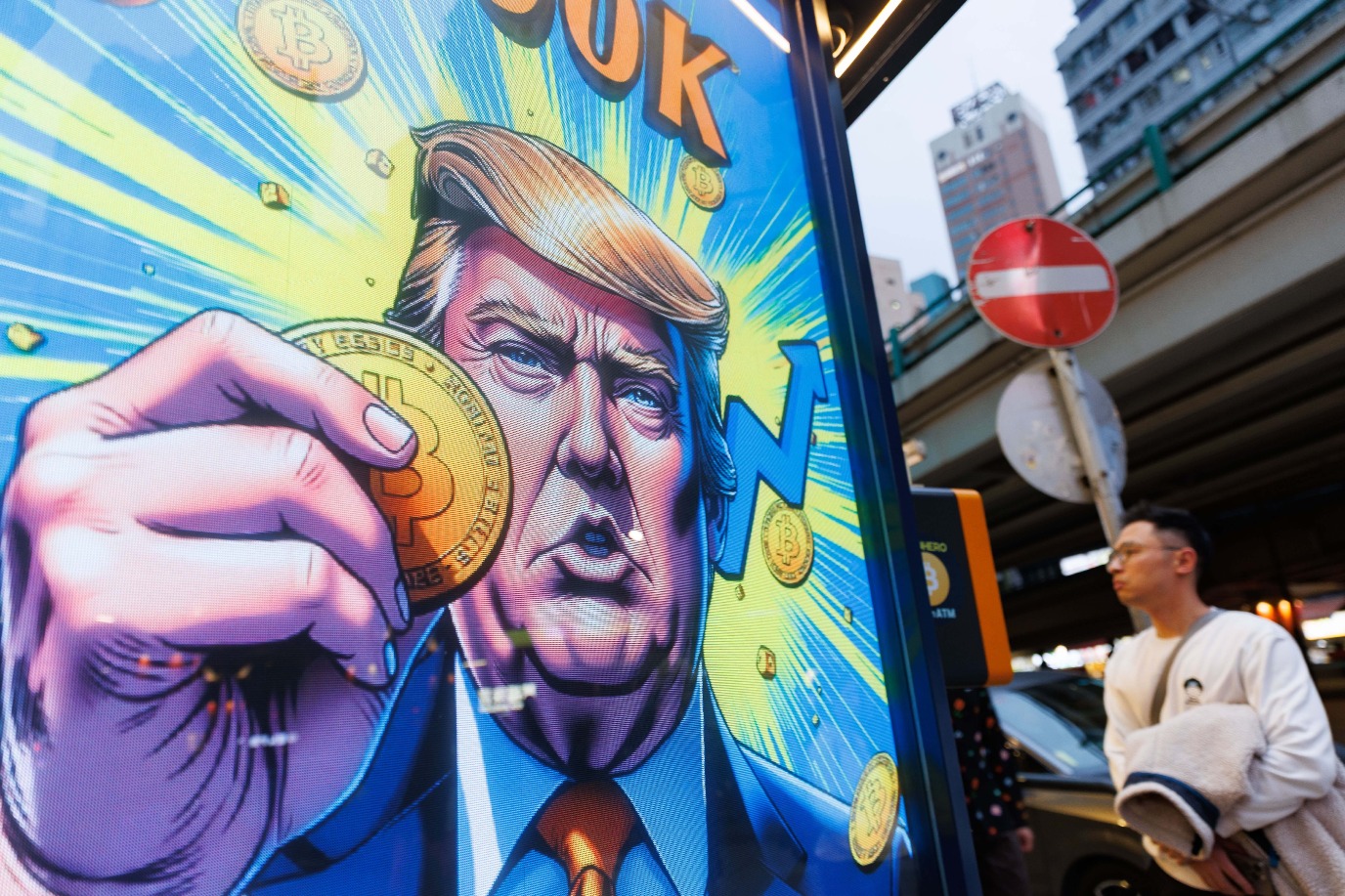Free rein for the crypto coin
Canadian-Dutch political economist Malcolm Campbell-Verduyn is fascinated by cryptocurrencies. It is full steam ahead under American President Donald Trump, he says. At the same time, the economist himself was involved in the crypto coin Ada as an advisor.
Text: Jurgen Tiekstra
Malcolm Campbell-Verduyn, assistant professor of International Political Economy, is a born Canadian. He obtained his PhD at the McMaster University in the city of Hamilton near Toronto and, due to his mother’s Dutch roots, went to the University of Amsterdam for a year as an exchange student. He grew even more attached to his mother’s country during this period because he met his Dutch girlfriend-to-be there and after his PhD he found a job at the University of Groningen.
Watershed
This period in Amsterdam – and in Leiden, where he obtained his Master’s degree in Political Science – shaped him both personally and academically. He graduated in 2008 when the financial crisis arrived from the US. In hindsight, he considers this period a watershed. ‘Absolutely. Hugely. Before this, I mostly studied trade conflicts: I did my Master’s at the World Trade Organization and was engrossed in the trade in biotech and genetically modified organisms. But when the financial crisis broke out… Wow, you can’t ignore an event like that, right? I became deeply interested in the financial system but also in ‘the alternative’ that was bubbling up at the time. I’m putting that in quotation marks, because, as it turned out, it was mainly an attempt to escape the financial system through crypto coins.’

Taking crypto coins seriously
‘First, there was Bitcoin, of course, and then came all the other varieties. I think I was one of the first who started taking crypto coins seriously at an academic level, apart from a couple of computer scientists and also some lawyers. Many people within social sciences thought: this is a passing trend; in five years no one will be talking about it anymore. Please don’t waste your postdoc research on it. I’m glad I didn’t listen to them because, as a study subject, crypto coins are the gift that keeps on giving.’
‘I myself also felt drawn to the alternative that was crypto coins. There’s something appealing to it: starting your own decentralized financial system at a time when the normal financial system has spectacularly failed. But if you try to look beyond that, you quickly see that crypto coins are not as great as they appear. Some problems could have been anticipated if the designers–who usually hadn’t taken a social sciences course–were somewhat more aware of the society, government regulation, and the law.’ Crypto coins make it possible to make payments outside the banking system, but the drawbacks are that there is a greater risk of speculation, scams, funding of illegal matters, and large fluctuations in value. Added to that is the fact that digitally creating crypto coins costs an extraordinary amount of energy.
Bad policy
Malcolm Campbell-Verduyn wrote multiple articles about it, including one that is published right now in the new book called Ineffective Policies: Causes and Consequences of Bad Policy Choices, a volume of academic articles compiled together with two fellow researchers from Canada. The threesome share the conviction that as researchers they are allowed to work normatively, they write in their introduction. This means that Campbell-Verduyn and co. discuss examples of what they call ‘bad policy’. They observe two varieties: either government policy that in itself may be economically quite successful but has negative consequences for the environment, or government policy of which it has been empirically proven that it does not work.
In the book, the born Canadian Campbell-Verduyn himself sheds light on the American policy concerning the crypto coins that emerged after 2008 like fungi after rainfall. Bitcoin has its origins in a paper published in the same year, written by a certain Satoshi Nakamoto. ‘We still don’t know whose pen name that is. It’s one of the great mysteries, comparable with the artist Banksy. There are even court cases about it. There’s an Australian man, for example, who claims he is Satoshi Nakamoto. Whoever Satoshi may be, they have a lot of bitcoins to their name, so if you can legally prove that you’re Satoshi you can definitely take out a mortgage or a loan for a private jet and that kind of stuff.’
Sympathetic stance
Campbell-Verduyn describes that for years the American government had a quite ambiguous way of dealing with Bitcoin and other crypto coins, although traditionally threats to the American dollar met with a tough approach. That is what electronic coins such as E-gold, Liberty Reserve, and Facebook’s currency Libra experienced. The difference is that Bitcoin uses a new technique called blockchain, a new type of database for transactions. This technological innovation was interesting and the reason to take a more sympathetic stance.
The tough approach was still maintained though as far as American security was concerned, such as terrorism funding through crypto coins. But the monitoring of speculation, fraud, and trade was happening less. In the end, there was even a Blockchain Caucus in the American Congress with politicians who campaigned for the crypto coins and also received money from that industry.

Trump
At long last, the reins were tightened in 2023 after all, but a year later, Donald Trump won the presidential elections. ‘It has become worse, much worse,’ says Campbell-Verduyn. ‘The American government is now the one leading the fraud. I mean: Trump now has his own memecoin, as does his wife. (A memecoin is a crypto coin that often has a less serious origin history than other crypto coins. JT) People invest millions in it in order to get closer to Trump. It’s basically bribery through his crypto coin. The American government not only terminated its enforcement but it actually entered the game.’ ‘In my eyes, it could only have come this far because of bad policy by the previous American governments, a policy that wasn’t clear on what it wanted to achieve, other than stimulating innovation.’
Tulip mania
The cryptocurrencies now form a financial bubble, says Campbell-Verduyn, that is comparable to the tulip mania of the seventeenth century. That does not stop him from being involved himself in such a digital coin, the cryptocurrency Ada in this case. Ada is based on the decentralized blockchain ecosystem Cardano. ‘The last couple of years, in my role as governance expert, I issued advice about the formulation of a constitution. This constitution has been published earlier this year and, to me, it was a fascinating experiment with digital governance. ‘My prime motivation to become involved is to help shape, from close by, an industry that is growing up and trying to regulate itself.’
This article has been taken fom our alumni magazine Broerstraat 5.
More information
Malcolm Campbell-Verduyn is assistant professor of International Political Economy at the Faculty department of International Relations and International Organization. In April, he was one of the writers of an open letter to the Board of the University: a call to eventually stop being dependent on American companies such as Google and Microsoft for video calling, emailing, and word processing. The UG, together with other universities, should aim for data autonomy.
More news
-
14 February 2026
Tumor gone, but where are the words?
-
19 January 2026
Digitization can leave disadvantaged citizens in the lurch
